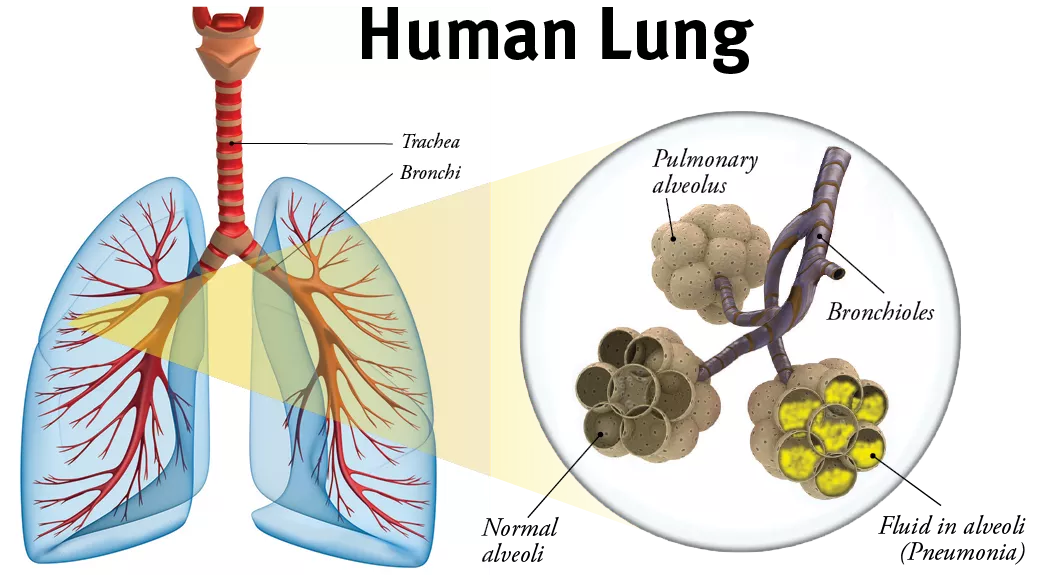by Luminis Health

Pneumonia can be caused by a viral or bacterial infection that affects one or both lungs. How long it lasts depends on the case, but symptoms normally last about two weeks. Antibiotics can often treat bacterial pneumonia, but are not effective for viral strains. Certain severe cases may require a hospital stay.
About 1 million Americans end up in the hospital due to pneumonia each year, according to the Centers for Disease Control and Prevention (CDC). It is important to be aware of how you’re feeling. If cold-like symptoms do not improve, visit your primary care provider for an evaluation.
MYTH: Pneumonia only affects very old and very young people.
TRUTH: While pneumonia affects these people most often, anyone at any age can get it. Pneumonia tends to be worse among older people because they may have chronic conditions, like heart disease or diabetes, that make it harder to fight off infection. Those at a greater risk include:
- Children 2 years old or younger
- People 65 years or older
- Smokers
- People who have been in the intensive care unit of a hospital
- People with a weakened or suppressed immune system
MYTH: Pneumonia is only a threat in the winter.
TRUTH: Pneumonia can strike any time of the year. It’s more common during winter since the flu and other respiratory infections are common then.
MYTH: Pneumonia is just a bad cold.
TRUTH: Symptoms are similar to a cold or flu but may be more severe and last longer. Symptoms include shortness of breath, tightness in the chest, fever, chest pain when you breathe or cough, and a cough that produces a thick mucus. If these symptoms continue or get worse over a five-day period, it’s time to see a doctor.
MYTH: Pneumonia isn’t contagious.
TRUTH: Pneumonia is contagious. But exposure to it doesn’t mean you’ll get it. Use common-sense care if you think you have pneumonia: Wash your hands, cover your mouth when you cough and stay home if you’re sick.



